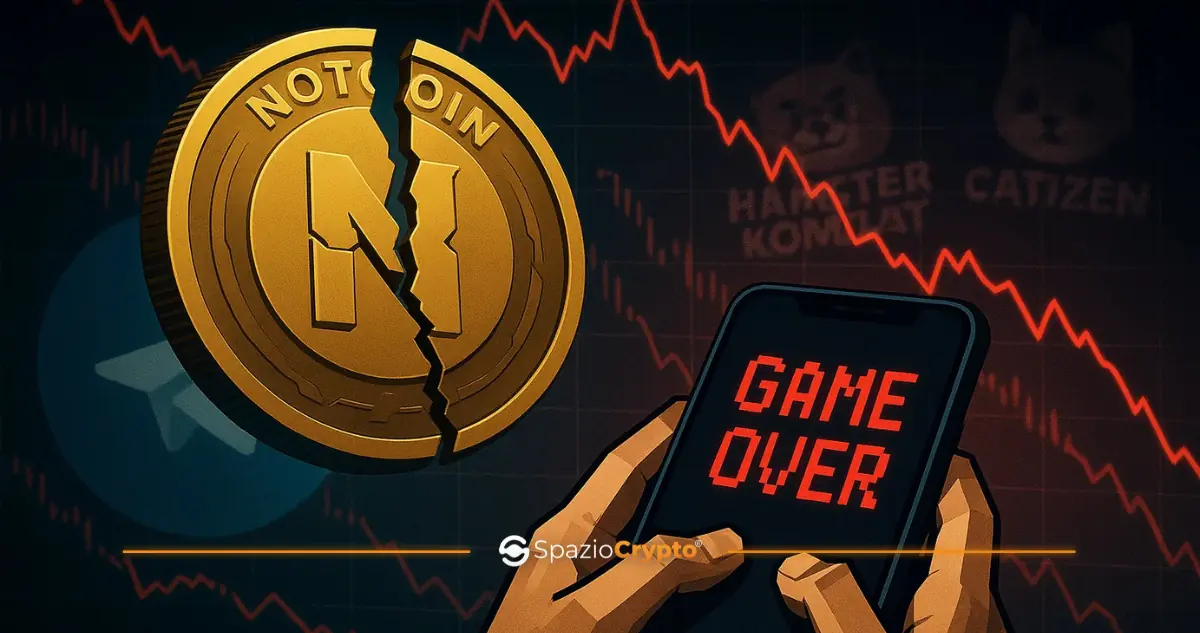Investors in Ethereum are aware that restaking is anow crucial component in the infrastructure of this cryptocurrency. For many, it is a source of attraction, since they are tempted to be able to receive rewards by pawning the currencies held within the wallet. Not everyone, however, wonders whether the operation is totally sound or instead shows some cracks.
Coinbase has done so and highlighted financial and security vulnerabilities. Following its investigation, it warned investors, advising them to beware of Ethereum restaking.
What is restaking?
Restaking is the fundamental driver of complex cryptocurrencies, such as Ethereum, Tezos, Cosmos, Solana and Cardano. We call them complex because they insert so many applications into blockchain, from service applications to Decentralised Finance (DeFi) to DApp we have already written about on SpazioCrypto, making their system of reference much more articulated than the one used, for example, by Bitcoin.
During staking, the blockchain literally puts tokens assigned by users who choose to take part in it to work. Through the proof of stake consensus mechanism, every single transaction carried out along the blockchain will be verified in real time. The restaker performs a parallel work to that of the miner and is authorised to add the last group of completed transactions to the blockchain. In doing so, he determines the validity of the blocks and the entire cryptocurrency infrastructure. In return for his trouble he receives Ether, if he is on Ethereum, or other tokens if he operates in different environments.
In concrete terms, the individual user guarantees the security of the blockchain by claiming it with his tokens. By doing so, he becomes a bearer of interest (or stakeholder) directly involved in the processes of the blockchain and declares that the entire system is acting in good faith, deterring any possible violation of protocol rules. The same will be done by the next user and the one after that.
The Challenges of Restaking
The restaking is thus a method of making one's assets profitable by investing them to generate rewards, which are typically other tokens. This dynamism allows the e-wallet to grow and increase in value, rather than accumulate virtual dust. By staking funds, one contributes to the enhancement of the reference blockchain, reinvigorating and strengthening it.
This does not mean that restaking is without its challenges and criticalities. According to Coinbase, some systems - including Ethereum's - are adopting opaque and complex strategies, which could cause financial instability on the entire blockchain and, in the worst case scenario, on the cryptocurrency industry as a whole. There are two alarm bells being sounded by the popular exchange.
The Critical Points according to Coinbase
Coinbase justifies its concerns by pointing out two aspects that, in its view, are quite critical and run the risk of critical> backfiring on investors who will choose the restaking of Ethereum.
The first doubt concerns the expectations related to so-called AVS (actively validated services), return estimates regarding these products are generally misaligned with reality, and could mislead the investor who expects to earn significant rewards from staking.
The second perplexity, which is more serious because it jeopardises the future of cryptocurrency, is related to theprinciple of restaking itself, whichcould pose a threat. The idea of chasing ever greater rewards encourages potential risky behaviour, such as excessive restaking. This could attract more investors in a first phase, but disappoint them later in a second, causing them to lose interest in subsequent transactions and, consequently, in the restaking cryptocurrency.
Naturally, we are in a hypothetical camp. Those of Coinbase are merely concerns. The exchange does not want to discourage Ethereum restaking, but rather to provoke reflection in the investor.
What are AVS?
The actively validated services integrate with Ethereum's security mechanisms via the specific EigenLayer and simplify the launch and management of blockchain services offered by this cryptocurrency.
Those working in Ether know thatthese services enable the validation of blockchain applications without their own consensus mechanisms. They manage to do this by leveraging Ethereum's consensus layer for secure and decentralised validation of every transaction.








